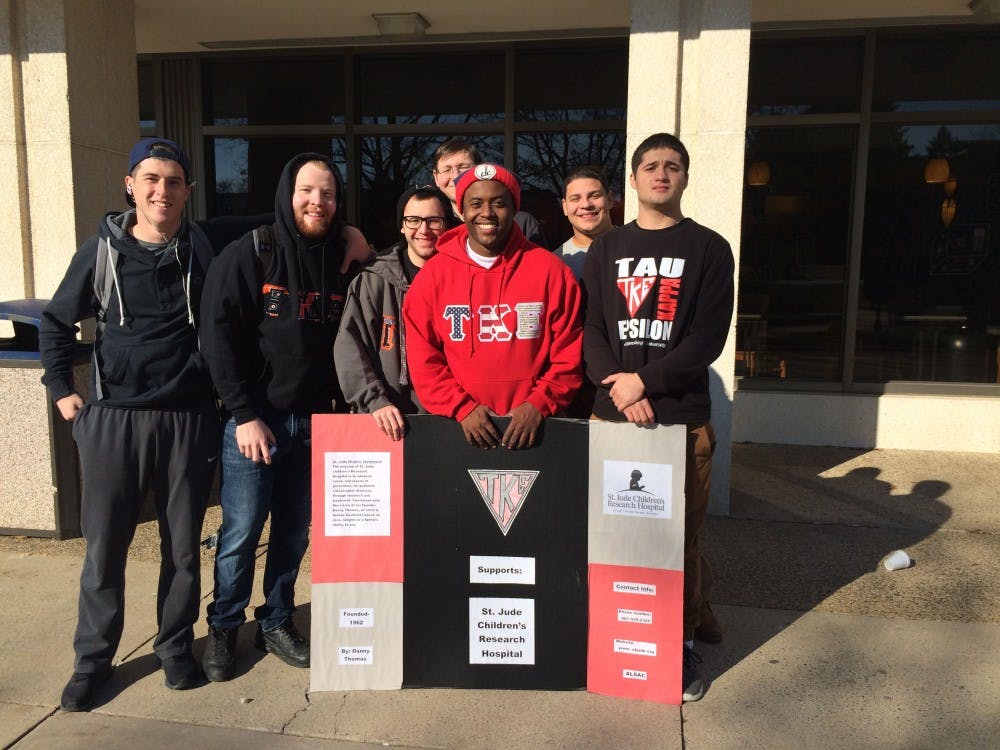Greek Life is no stranger to the public eye, nor is it uncommon for people to read stories with negative characteristics surrounding them.
A University of Alabama sorority, Alpha Phi, was criticized for a salacious recruitment video objectifying women and not acknowledging any values. An Old Dominion University fraternity, Sigma Nu, was suspended for a suggestive sign reading “Freshmen Daughter Drop Off” outside a fraternity house. A University of Oklahoma fraternity, Sigma Alpha Epsilon, had its house shut down and its members were expelled over racist chants.
These are only three events within the past year about Greek Life and some of its many downfalls. With circumstances such as these, stereotypes, many of which have existed for years, develop and cause outsiders to view Greek Life in a negative light. However, this is not the case for everyone.
Olivia Guerin, a junior at Shippensburg University and sister of Alpha Sigma Tau (AST), exemplifies a sorority sister not associated with these stereotypes. She chose AST for this reason.
“The stereotypes surrounding Greek Life do not represent my sorority, nor the other organizations on campus because we participate heavily in community service and bettering campus life for all,” Guerin said. “Our new member processes are not as severe as those of larger universities. We also participate in programs that educate us on hazing, as well as drinking alcohol and doing drugs.”
Greek Life is a part of numerous colleges and universities across the country. The New Jersey Institute of Technology (NJIT) provides its students with a great deal of information concerning fraternities and sororities. According to a research they conducted, more than 800 campuses in the United States and Canada participate in Greek Life. A U.S. Government study shows that more than 70 percent of all those who join a fraternity or sorority graduate, while less than 50 percent of all non-fraternity or sorority persons graduate.
They have existed for years and have provided many generations with some of its greatest leaders. According to NJIT, every U.S. president and vice president, with the exception of two in each office, since 1825, have been members of a fraternity. Additionally, 76 percent of all U.S. representatives and senators belong to a fraternity.
At Shippensburg University, this is no different. In the past three years, all senate presidents have been heavily involved in their fraternities and many of the women in sororities serve on the Women’s Panhellenic Council.
Emilee Danielson-Burke, associate dean of students and director of fraternity and sorority life, oversees all of Greek Life at SU. While she knows there are stereotypes out in the public eye, she encourages students to always look for more information and ask the questions they need answers to. She said she hears people say you buy your friends, you haze, all you do is drink, but those are not the only components of Greek Life.
Taylor Bennett, president of the Women’s Panhellenic Council, understands where the problems stem from, but believes the media also plays a role.
“There are just sweeping generalizations that not every person can identify with and that is a little unfair,” she said. “All the bad things come out but there is so much good that comes out of being in a Greek letter organization that a lot of people don’t see.”


The Slate welcomes thoughtful discussion on all of our stories, but please keep comments civil and on-topic. Read our full guidelines here.